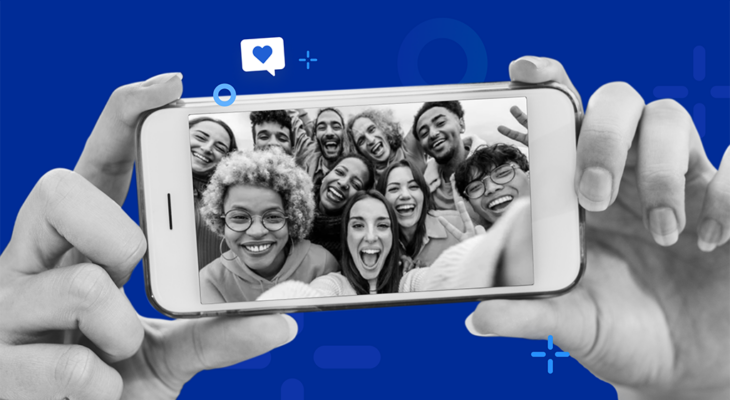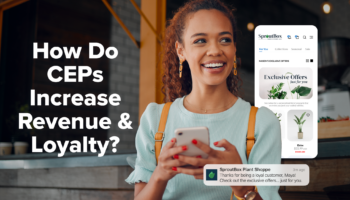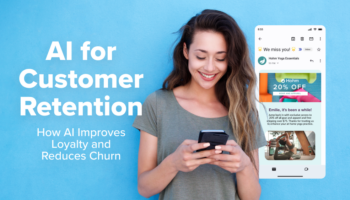Gen Z and Millennial shoppers will likely be your biggest revenue drivers this peak holiday shopping season. Millennials have an average holiday shopping budget of $1,823 – 27% higher than for consumers overall, according to PWC. Meanwhile, in 2021, 70% of US and 60% of UK Gen Z shoppers waited until the holiday shopping season to splurge on Black Friday offers and deals, notes Student Beans. So what makes these generations tick and how best to market to them?
Gen Z and Millennials: 5 Marketing Strategies To Earn Their Attention

GETTING INTO GEN Z
The Private Lives of Gen Zers
If you live with a Gen Zer (born between 1997 and 2012) you might wonder what goes on behind their bedroom doors. Are they listening to music on Spotify? Live streaming on Twitch? Catching up with friends on Discord? Gen Zers are anywhere and everywhere, and have very niche interests. As a marketer, it has never been so hard to pin down a generation, and it’s impossible to market to Gen Z through a generic lens.
Horizon Media’s Why Group hits the nail on the head when its SVP of cultural intelligence told Retail Dive: “The trends [that drive Gen Z] are changing so often, there really isn’t a ‘mass culture’ anymore … Subcultures are the new demographics as members of this generation connect and respond to the things they are most passionate about.” The Why Group’s report, The Gen Z Field Guide, is fascinating reading that gets inside these subcultures
SAME OR DIFFERENT
What Drives Gen Z and Millennials
There are a lot of other studies out there about Gen Z; some of them study Gen Z and Millennials together. It can therefore be easy for some marketers to lump those two generations together – and they do share some similarities. But for the most part, they are very different and that means you need to understand those nuances – and even nuances within their generations.
For example, the life stages of a Millennial (born between 1981 and 1996) could span from post-grad to first job to children and perhaps running their own business or leading a department of a large organization. And while both Gen Z and Millennials grew up (or are growing up) in the digital-first age, they have different preferences for finding out about and interacting with brands and products, and different preferences for purchasing.
THE ALWAYS-ON GENERATION
Gen Z and Millennials Want a Consistent Experience Across Channels
Brand authenticity is a huge driver for Gen Z buyers, and that’s the same for Millennials too. In fact, 60% of all consumers want to buy from brands that reflect their own values of sustainability and purpose, according to PWC. In a separate 2021 survey of Millennials, 40% of them have boycotted a brand in the prior year due to differences in social and political views.
Millennials are swayed by free delivery and coupons/discounts, while Gen Z shoppers want alternative payment options, such as Buy Now Pay Later. A full 60% of Millennials prefer to shop online, while 47% of 16-to-20 year-olds, and 43% of 21-to-24 year-olds prefer to shop in-store, according to GWI’s Gen Z Retail Trends report. Both generations value a consistent experience across channels and touchpoints.
YEAR-ROUND MARKETING STRATEGIES
5 Strategies For Marketing to Gen Z and Millennials
Given that the Gen Z and Millennial generations are very different, it’s important to listen to them and market to them year-round. Here are five strategies for marketing to them during the peak shopping season and beyond.
LISTEN AND CONNECT
1. Never Stop Listening
We know the importance of listening to customers. But to the point that the Why Group makes in its Gen Z subculture report, trends change so often, it’s incredibly important to use all your marketing tools to listen to this group – and to keep listening and connecting all that data together so you can respond to them with intelligence.
BE ACCOUNTABLE
2. Be Authentic In Your Marketing
According to a 2020 Student Beans user survey, 95% of Gen Zs around the world have taken action towards a cause that they believe in. Gen Zers want to surround their world with brands that share their values – and they’re holding brands accountable for their earlier promises and actions around issues this generation cares deeply about.
Segment this audience and let them know about how your brand continues to support the social and environmental issues that are important to your brand. Reach them on the channels that your data shows you of where and when they’re most likely to interact with your brand, such as through educational newsletters, social ads, and your website.
PERSONALIZATION IS KEY
3. Market With Hyper-Personalization
We’ve discussed before how consumers expect personalization from brands, but the need for personalization gets to a whole new level for Gen Z customers. As the Retail Dive article suggests: Reaching such hyper-specific consumers requires a level of nuance that hasn’t previously been marketing’s forte.” That’s why strategy #1 of never stop listening is so important. Marketers need AI to help them understand these nuances and make intelligent connections within the data and analytics so that you can better engage these customers.
OMNICHANNEL IS IMPORTANT
4. Create Consistent Experiences Across Channels
Even though Millennials prefer to shop online and Gen Zers prefer to shop in-store, both generations value a consistent experience in all the channels they interact with brands – digitally and in-stores.
Use AI marketing to learn where they are and where and when they prefer to interact with your brand, who their influencers are, and what offers or incentives will more likely seal the deal for your brand. With this rich data, you can send them the most appropriate messages, content, and recommendations on the channels they want to hear from you. The result is automated and connected cross-channel customer journeys.
YEAR-ROUND MARKETING
5. Be Always-On – Not Just During The Peak Shopping Season
A full 28% of consumers plan to spend less this holiday season, according to a survey by Gartner. A further 16% of consumers said they’d shop year round for holiday gifts. Although Millennials have the largest holiday shopping budget of all consumers, according to PWC, it’s wise to keep them updated with reasons for why they should stick with your brand. For Gen Z, educating them on your brand values also serves the purpose of keeping your brand top of mind for them.
Use AI marketing to help you engage with customers year-round with relevant offers, recommendations, and messages. That’s a great way to build brand loyalty too.
Marketing to Gen Z and Millennials can be fun and extremely rewarding for marketers. These generations are incredibly loyal to their favorite brands – but you have to work hard to earn that respect. In the same way that the Why Group’s Gurevich suggests that: “algorithm is [Gen Z’s] gateway to the world,” AI marketing is your gateway to understanding these two generations and marketing to them with intelligence. Just remember to have fun, too.
Check out our Gen Z vs. Millennials infographic for more about how these two generations shop and interact with brands.


